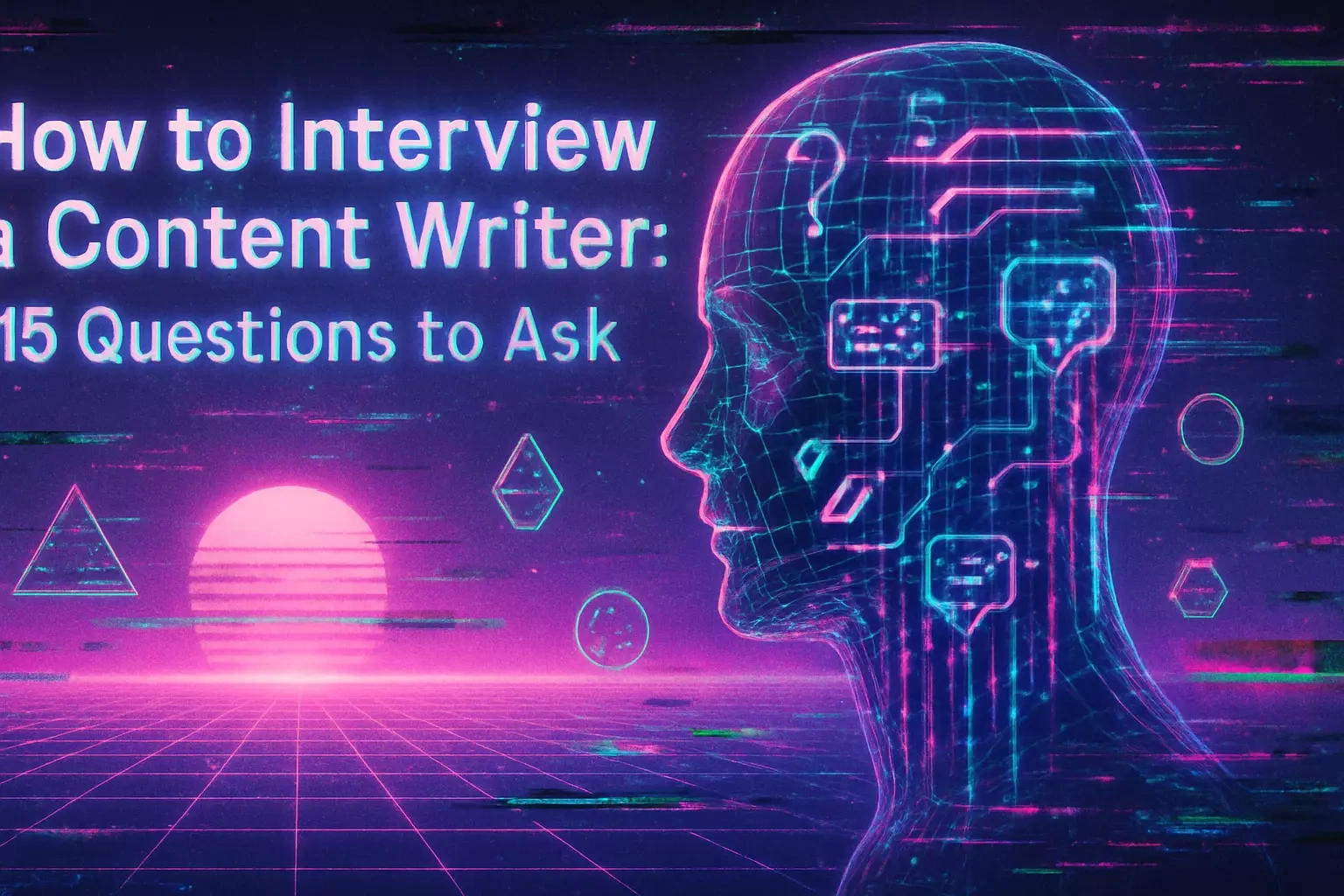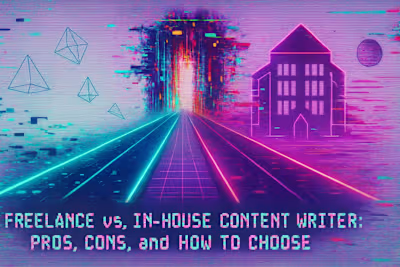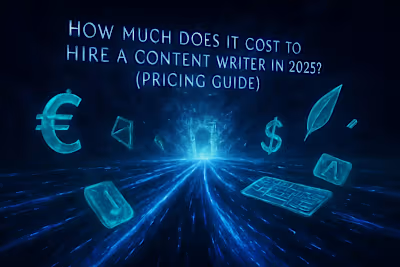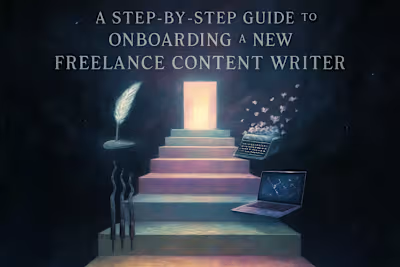How to Interview a Content Writer: 15 Questions to Ask

How to Interview a Content Writer: 15 Questions to Ask
Setting the Stage: Beyond the Portfolio
The Importance of a Paid Trial Assignment
Questions About Their Experience and Niche
1. 'Can you tell me about your experience in [Your Niche/Industry]?'
2. 'Which piece in your portfolio are you most proud of and why?'
3. 'What types of content do you specialize in?'
Questions to Assess Their Writing and Research Process
4. 'Walk me through your process for a new writing assignment.'
5. 'How do you approach keyword research and SEO?'
6. 'How do you ensure your content is original and factually accurate?'
7. 'How do you adapt your writing to a specific brand voice?'
Questions About Collaboration and Professionalism
8. 'How do you handle feedback and edits?'
9. 'What is your typical turnaround time for a 1,500-word article?'
10. 'What project management tools are you familiar with?'
11. 'What are your rates and how do you structure your pricing?'
12. 'What questions do you have for me?'
Making Your Final Decision
References
How to Interview a Content Writer: 15 Questions to Ask
Setting the Stage: Beyond the Portfolio
The Importance of a Paid Trial Assignment
Questions About Their Experience and Niche
1. 'Can you tell me about your experience in [Your Niche/Industry]?'
2. 'Which piece in your portfolio are you most proud of and why?'
3. 'What types of content do you specialize in?'
Questions to Assess Their Writing and Research Process
4. 'Walk me through your process for a new writing assignment.'
5. 'How do you approach keyword research and SEO?'
6. 'How do you ensure your content is original and factually accurate?'
7. 'How do you adapt your writing to a specific brand voice?'
Questions About Collaboration and Professionalism
8. 'How do you handle feedback and edits?'
9. 'What is your typical turnaround time for a 1,500-word article?'
10. 'What project management tools are you familiar with?'
11. 'What are your rates and how do you structure your pricing?'
12. 'What questions do you have for me?'
Making Your Final Decision
References
Posted Jun 15, 2025
Don't get stuck with the wrong hire. Use these 15 essential interview questions to assess a content writer's skill, strategy, and professionalism.










